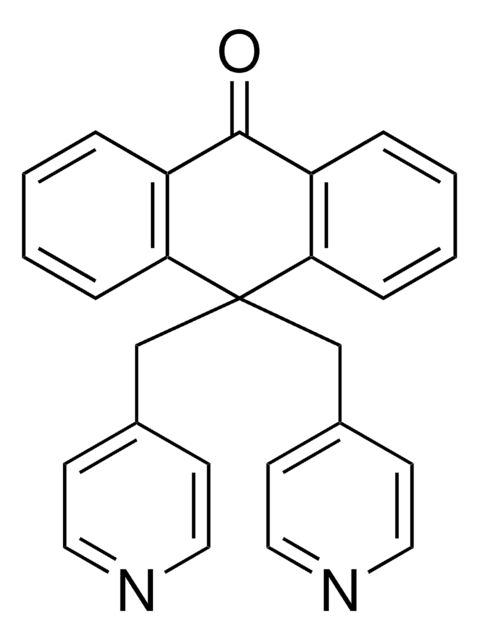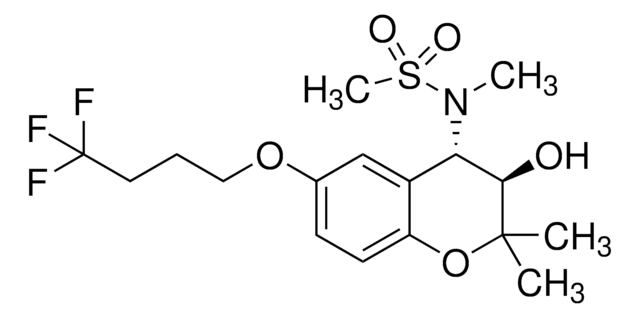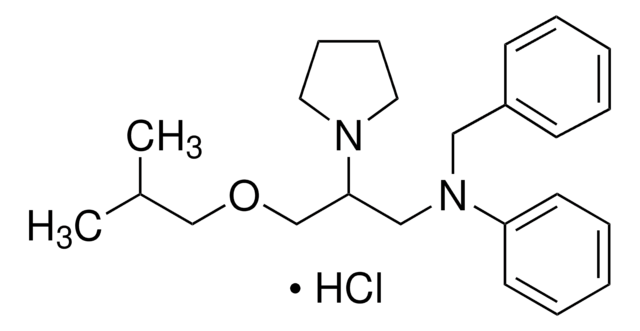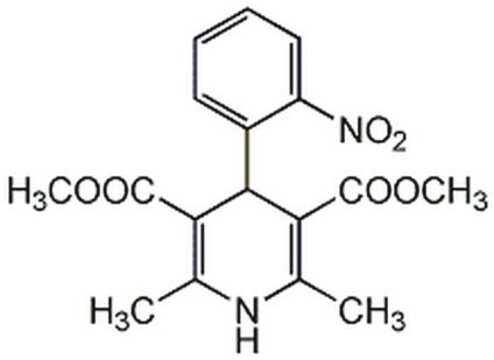C2615
Chromanol 293B
≥98% (HPLC), powder
Synonym(s):
trans-N-[6-Cyano-3,4-dihydro-3-hydroxy-2,2-dimethyl-2H-1-benzopyran-4-yl]-N-methyl-ethanesulfonamide
About This Item
Recommended Products
Quality Level
Assay
≥98% (HPLC)
form
powder
color
white
solubility
DMSO: 18 mg/mL
storage temp.
−20°C
SMILES string
CCS(=O)(=O)N(C)[C@@H]1[C@@H](O)C(C)(C)Oc2ccc(cc12)C#N
InChI
1S/C15H20N2O4S/c1-5-22(19,20)17(4)13-11-8-10(9-16)6-7-12(11)21-15(2,3)14(13)18/h6-8,13-14,18H,5H2,1-4H3/t13-,14+/m0/s1
InChI key
HVSJHHXUORMCGK-UONOGXRCSA-N
General description
Application
Biochem/physiol Actions
Features and Benefits
Signal Word
Warning
Hazard Statements
Precautionary Statements
Hazard Classifications
Acute Tox. 4 Dermal - Acute Tox. 4 Inhalation - Acute Tox. 4 Oral
Storage Class Code
11 - Combustible Solids
WGK
WGK 3
Flash Point(F)
Not applicable
Flash Point(C)
Not applicable
Personal Protective Equipment
Regulatory Listings
Regulatory Listings are mainly provided for chemical products. Only limited information can be provided here for non-chemical products. No entry means none of the components are listed. It is the user’s obligation to ensure the safe and legal use of the product.
PDSCL
Deleterious substance
JAN Code
C2615-50MG:4548173191041
C2615-BULK:
C2615-VAR:
C2615-10MG:4548173191034
C2615-IP:
Certificates of Analysis (COA)
Search for Certificates of Analysis (COA) by entering the products Lot/Batch Number. Lot and Batch Numbers can be found on a product’s label following the words ‘Lot’ or ‘Batch’.
Already Own This Product?
Find documentation for the products that you have recently purchased in the Document Library.
Customers Also Viewed
Our team of scientists has experience in all areas of research including Life Science, Material Science, Chemical Synthesis, Chromatography, Analytical and many others.
Contact Technical Service













